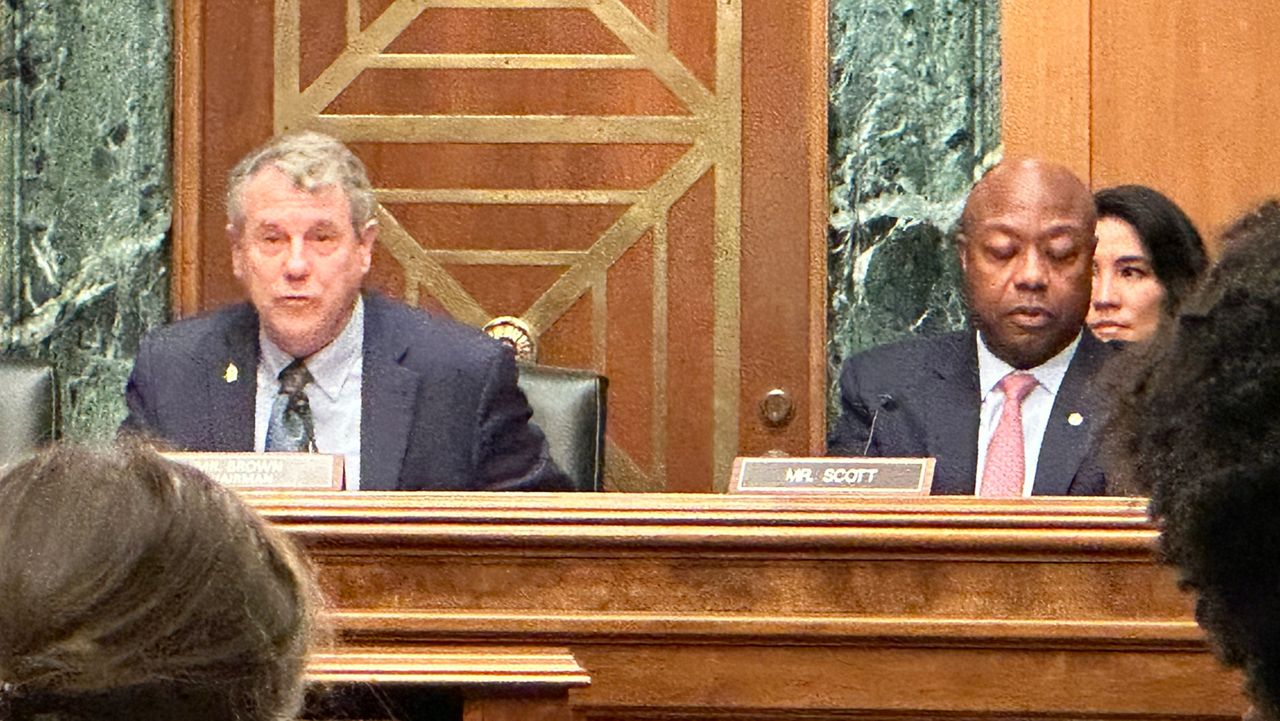WASHINGTON, D.C. — As liquid natural gas (LNG) production is booming, the Biden administration has paused some new LNG exports. Concerned the decision could hurt the domestic LNG industry, some lawmakers are calling on the president to reverse it.
What You Need To Know
- LNG production hit a record high in 2023, when the U.S. became the world’s largest LNG producer
- Ohio is one of the nation’s top 10 natural gas producers and the biggest in the Midwest
- Rep. Bob Latta, R-Ohio, has vehemently opposed the pause, saying it will lower demand for American energy
- Sen. Sherrod Brown, D-Ohio, meanwhile, has said he is reviewing the pause on LNG exports, especially to countries like China
LNG production hit a record high in 2023, when the U.S. became the world’s largest LNG producer. Ohio is one of the nation’s top 10 natural gas producers and the biggest in the Midwest, thanks to the fracking of the Marcellus Shale. Gross withdrawals of natural gas peaked at 2.65 trillion cubic feet in 2019, then declining to 2.3 trillion cubic feet of natural gas in 2022.
The gas and oil industry supported 5% of the American workforce in 2021, according to the American Petroleum Institute, including directly supporting 351,530 jobs in Ohio.
In February, President Joe Biden announced a pause of new natural gas export terminals while the Department of Energy updates its economic and environmental analysis of LNG exports. The last analysis was completed in 2019, when LNG output was less than a third of current capacity.
Biden also cited the need to reduce greenhouse gas emissions as a reason behind the decision.
“[The] pause on new natural gas export approvals recognizes the climate crisis for what it is: the existential threat of our time,” Biden said in a video posted by the White House.
Rep. Bob Latta, R-Ohio, has vehemently opposed the pause, saying it will lower demand for American energy.
“They’re going to start curtailing their production. That means that start laying people off and then all the equipment and all the pipe and everything else they need, all of a sudden companies out there say, well if we don’t don’t have the ability to produce it, they’re not going to do it,” Latta said.
Latta argued less output would lead to higher energy costs for consumers.
However, a report by the U.S. Energy Information Administration found that more—not less—exported LNG lead to higher domestic prices.
Latta also said not allowing future LNG exports would hurt Europe, which has relied heavily on American natural gas to wean itself off Russian energy amid the Ukraine war. In the absence of additional natural gas, Latta said European nations would be forced to buy their energy from Russia.
“If Putin gets the money, what is he going to do with it? He’s going to use it for his war in Ukraine,” Latta said. “It’s important that we make sure that we produce the gas here in the United States so that we can help our friends from around the world.”
Sen. Sherrod Brown, D-Ohio, meanwhile, has said he is reviewing the pause on LNG exports, especially to countries like China.
Sen. Sherrod Brown, D-Ohio, meanwhile, has said he supported the pause on LNG exports, especially to countries like China. Brown is among multiple politicians on both sides of the aisle and U.S. officials who have said China uses unfair trade practices that hurt American workers.
“They hire child labor, slave labor in the Uighurs in southern China. They cheat when they sell their products to the United States. We are in that way exporting American jobs when we send them natural gas,” Brown said.
Brown introduced a bill to ban exports of crude oil and natural gas to China, as well as Russia, Iran and North Korea.
The four countries combined currently received 6.7% of America’s natural gas exports.
Some Republicans said they would not be opposed to such a limited ban.
“They’re not your competitors. Communist China is our adversary,” Latta said.
Even as the federal government reviews its LNG export policies, the Energy Information Administration projects the U.S. will remain a net exporter of LNG through 2050.
Correction: This story has been updated to clarify that Sen. Sherrod Brown is still reviewing the pause on LNG exports. (March 14, 2024)









